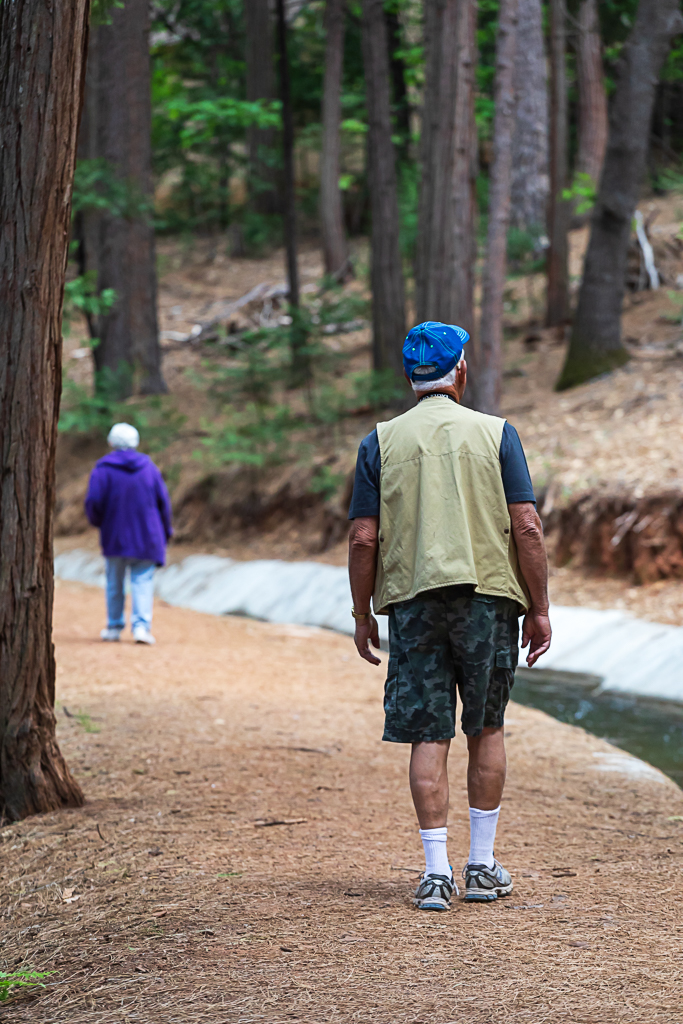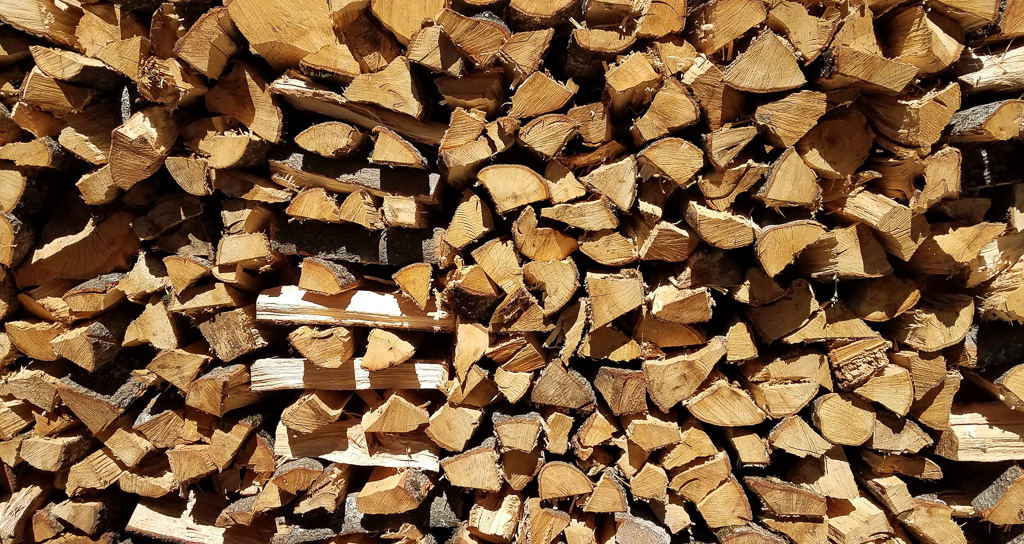
First a bit of background. I live in the mountains, in a rural area, I get snow regularly, and along with that, frequent power outages. I want to stay warm and I also want to eat. I often cook my oatmeal on the wood stove, for whatever reason it seams to taste better. Financially it also makes a lot of sense. The cost of wood can be nearly negligible, just the cost of a chainsaw and the fuel to run it. (although we also use a gas powered splitter). If I relied just on my propane central heating, I’d likely be spending $400-600 a MONTH. I simply don’t have the budget for that. My house is well insulated, it’s small, and on one level, and the heater is not old. But propane up here has to be trucked in, not piped like in urban areas. It’s far more expensive. Wood heat also feels warmer. Maybe it’s psychological, but it’s just cozier, even a wood stove where you can’t see the flames like a traditional fireplace.
Could I move somewhere else with less expensive wired and/or piped energy? Yes, but I wouldn’t be nearly as happy as I am here. I’m about 1/4 air mile from a National Forest, it’s so quiet, and at night the stars literally blaze. I can lay in bed and see the Milky Way. In the last few weeks my neighbors have posted photos of bear, mountain lions, and even an adorable and sneaky ringtail. I have a daily parade of deer and squirrels and birds from tiny bushtits to wild turkeys. I’m well above the poor air of the Central Valley (as well as those darn almonds that give my allergies fits).
How can using a wood stove be environmentally friendly?
I want to be clear on a few things. I’m not suggesting everyone should heat by wood. In urban areas and/or areas where pollution is pushed onto other regions, it’s not a good solution. There are more efficient and cost effective ways of staying warm in cities. But in rural mountain areas surrounded by thick forests, where off the grid heating is needed, it’s a viable solution. In many areas here having a supplemental independant heat source is part of the building code.
Wood stoves are 50% or more efficient than they were even a few decades ago. This means more heat/log and less emissions. Using properly seasoned (dried) firewood also has a big impact on the number of gasses and smoke given. I primarily burn oak – it’s a far denser wood than pine, and lacks the pitch that pine has. This results in less emissions, and less creosote build up in chimneys.
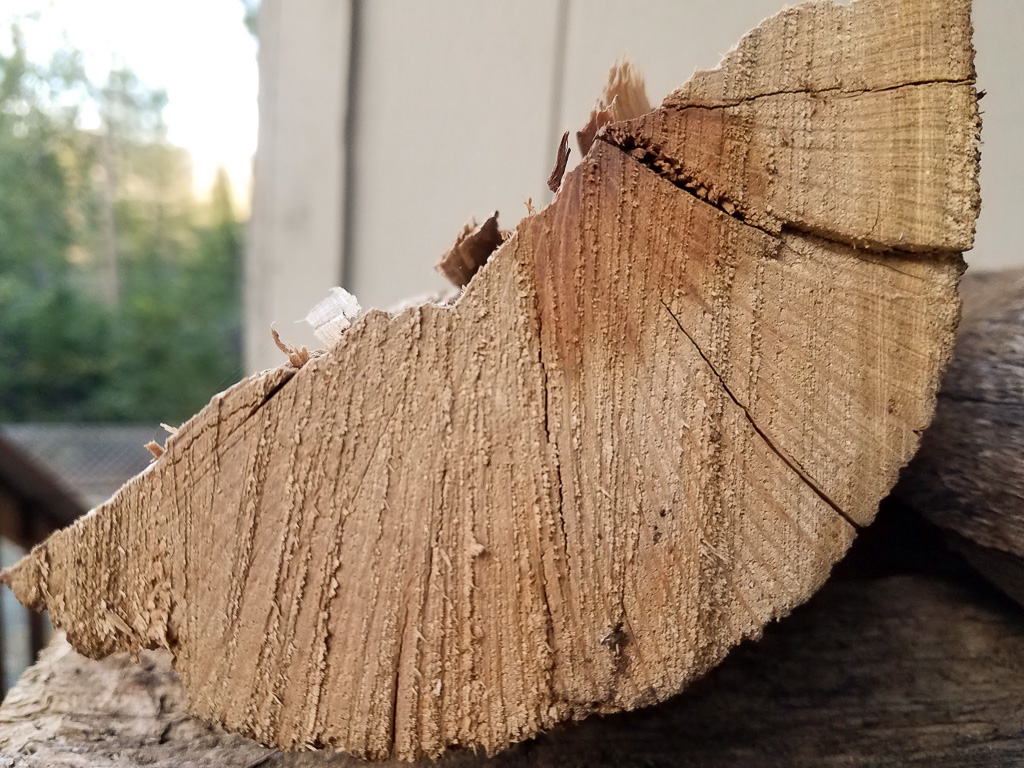
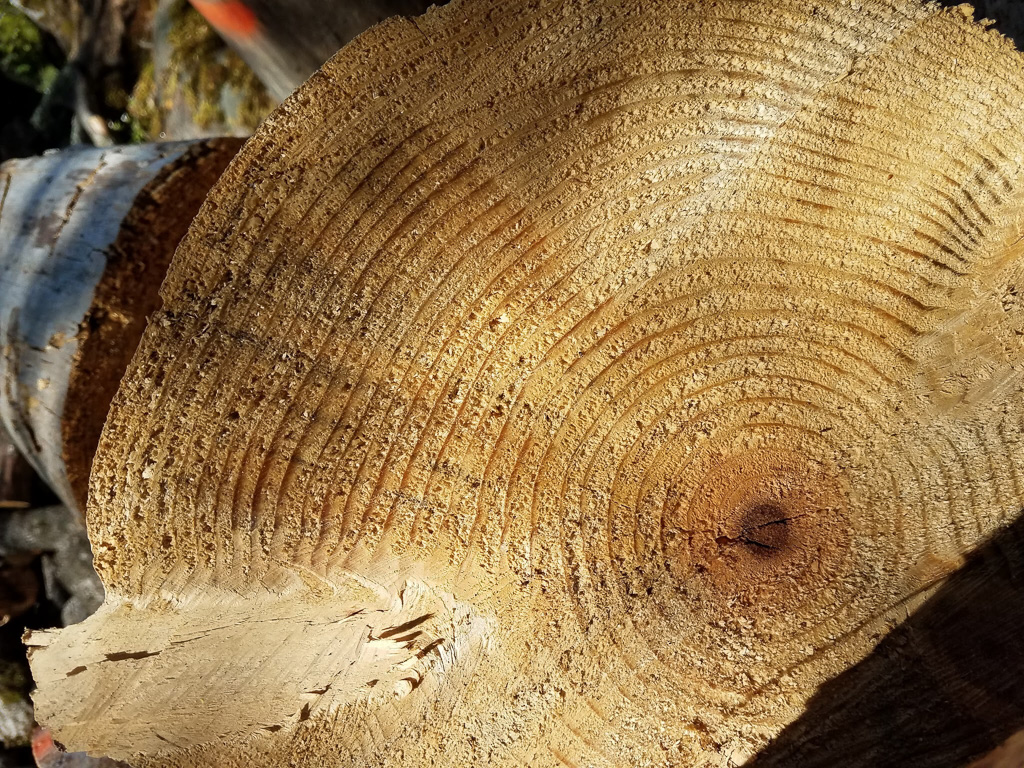
Growing up we would get wood from the Stanislaus National Forest. It was a lot of work, we’d usually do a few trips each summer, but it was also fun. I say this now, because I’ve forgotten how tired I likely was. We’d always have a picnic lunch, and if time (and energy) allowed do a little exploring afterwards. My Dad always knew the best places to go. We heated primarily with wood when I was young too. Doing so also taught me a lot about sustainability. Cutting all the trees down doesn’t work long term!
I recently was “donated” some pine that was infested by the bark beetle. Fortunately most of the wood from this tree was still solid. It was just 2-3 rounds that had some not so nice surprised when split open. If you’d like to search for bark beetle and wood borer maggots… go ahead. They’re not a pleasant surprise, especially the wood borers which are quite large. We left those logs split in half for the birds to find some protein.
On a side note, one “amusing” and purely capitalistic response to the bark beetle epidemic, is the affected wood is being sold at a premium. Not only are mills able to charge a price higher than unaffected pine, but wood flooring and construction companies are marketing it as an “environmentally friendly” option. I don’t think this is a bad thing, just ironic. I’m glad the wood is being put to good use.
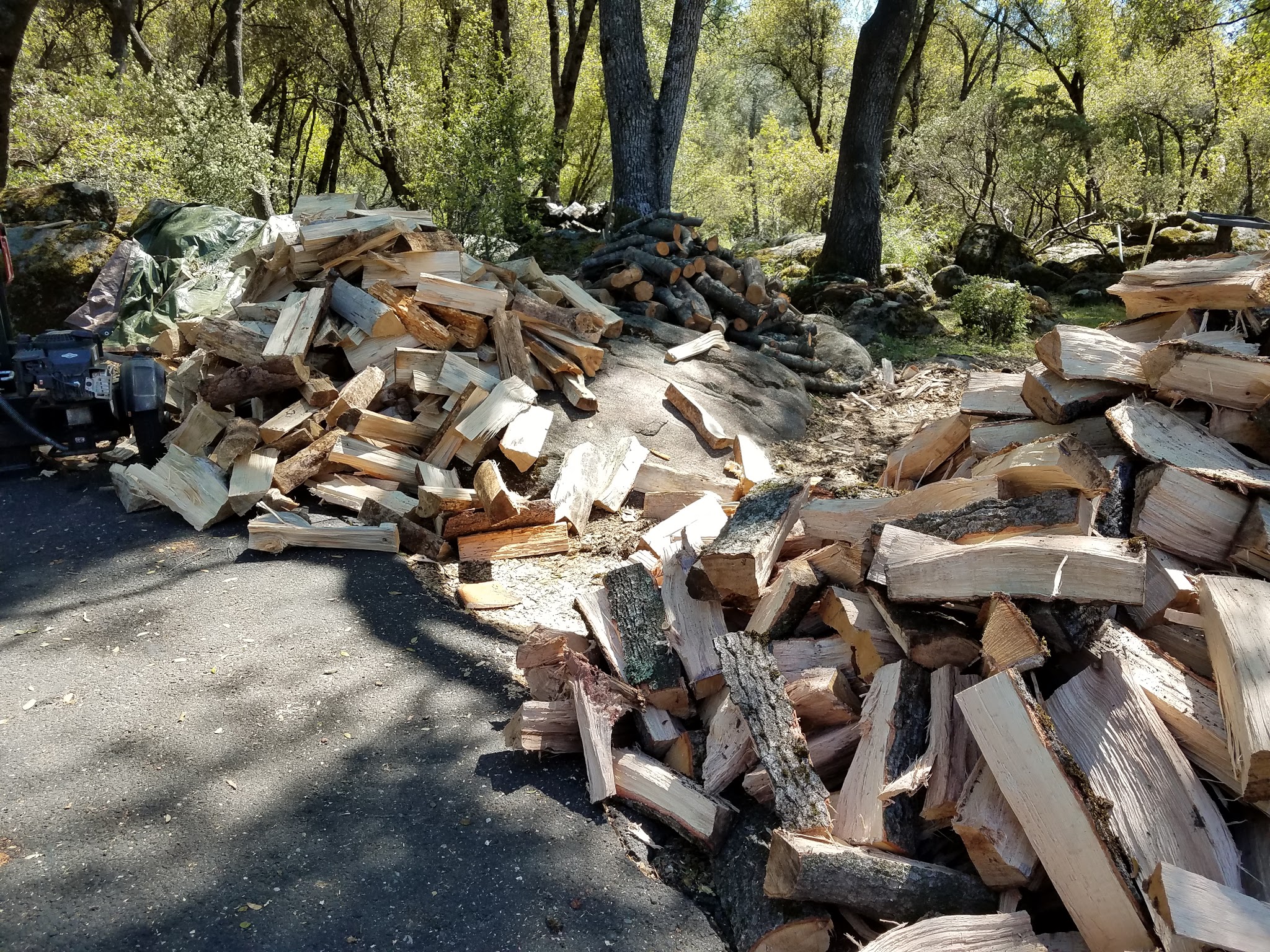
The Moral of this Story
The moral is there isn’t a one size fits all when it comes to energy sources. I live in a state dominated politically by the coastal cities. They *sometimes* don’t understand that what is appropriate for them, is appropriate for all. To be fair, I sometimes have a hard time understanding why people want to live in a big city 🙂 But I also don’t think I should set their local laws and regulations.
Wood is of course a renewable resource. There is much debate currently over whether it should count as carbon neutral. The theory in favor of it assumes that a tree will grow to replace the one cut for energy. On an industrial scale, that’s not always the case, at least not necessarily a native species, in a normal mix of species. In a natural setting, such as a national forest, where demand is more in tune with availability, it’s more likely to happen. The bark beetle epidemic is changing that, as is climate change. We humans have also drastically affected the health of (particularly Sierra Nevada) forests by halting most logging and grazing in addition to clamping down on wildfires over the last decades. As a result the forest have become choked with weakened unhealthy trees which along with the drought, contributed to the beetle epidemic and some of the wildfires.
Lastly, I think we all want to live in a healthy planet. We all have different experiences, different biases. To some extent we all live in our own echo chambers, it’s more fun to get along and talk with people that agree with us. But we should venture out of our comfort zones, examine our assumptions, and really look at what we can do to leave this planet better off for future generations. it’s easy to point fingers at inefficient power generation, fossil fuels, and other sources of pollutants. We should continue to invest in cleaner affordable technology. We (especially western countries) should just plain consume less energy. But at some point we need to realize that there’s a finite number of people this planet can support. We can in time go off and explore and colonize other planets – and that excites me. But we also have the ability to control our own growth. That more than anything will ease the burden of future pollution.

China took drastic measures and limited the number of children couples could have. Do we need to do that on a global level? I don’t know. I don’t even know how that would be enforced. That’s not even fair to areas with a far smaller footprint than the U.S. Ironically some developing countries are far greener than the U.S. as they’ve skipped the fossil fuel plants and gone straight to renewable. It’s easy to make the small changes, and we should do them. But we can’t ignore tough choices either.


